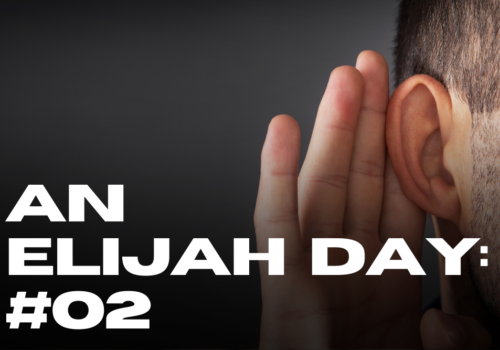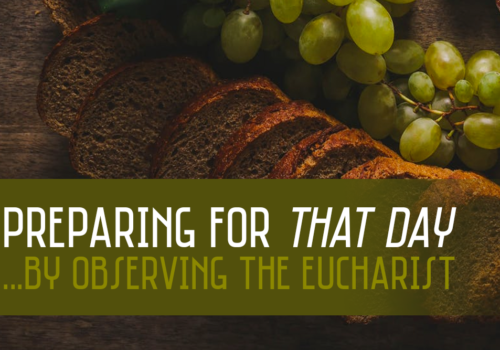“Moreover, it is required of stewards that they be found faithful” (1 Corinthians 4:2 ESV).
The Way of Faith
In responding to God’s call to faithfulness we begin, as did the writer of Hebrews in his Hall of Fame of the Faithful, with Abel, the second child of the first couple. Why Abel? Because Abel illustrates faith as the way to God.
“By faith Abel offered to God a more acceptable sacrifice than Cain, through which he was commended as righteous, God commending him by accepting his gifts. And through his faith, though he died, he still speaks” (Hebrews 11:4 ESV).
In contrasting Abel’s offering with Cain’s much has been written. Yet, in the simplicity of the Gospel the difference is simply faith versus works.
Abel offered in faith while Cain offered of himself.
Jude tells us that the way of Cain is the way of self (see Jude 11), Genesis tells us that Cain was a “worker of the ground” (see Genesis 4:2). Thus, Cain brought his ‘works’ to the Lord whereas Abel, in faith, brought the best—and God accepted Abel’s offering.
Many today still succumb to Cain’s way by believing their works will bring them to God. But it is not of works, lest any man boast. We come to the Lord by grace through faith, and not of ourselves, for it is God’s gift (see Ephesians 2:7-9).
Even after one comes to the Lord by faith and not works, the natural tendency to think personal works results in righteousness must be purged.
Abel was commended as righteous because God accepted his gifts. Believers today are commended righteous because the Father accepted His gift to us, Jesus Christ. Christ is the believer’s righteousness (see 1 Corinthians 1:30).
By Him and Him alone, our sins are pardoned, and we are ‘made’ righteous. There is no work of our own that can add to that righteousness.
Christ’s righteousness is completely complete. Believers are righteous because they are “in Him” and He is righteous.
Thus, in our desire to be faithful stewards, we must remember that personal works will always desire preeminence over His grace in our lives. Just as Cain rose up and killed his brother, so too will works want to abolish faith by replacing Christ’s righteousness of faith with the self-righteousness of works.
To keep works at bay, we must embrace faith as the only way to God. Faith is what started us on Salvation’s path, it’s what keeps us in the Way, and it’s what makes us an acceptable sacrifice in that daily walk—for without faith it is impossible to please Him! (see Hebrews 11:6).
The Walk of Faith
“By faith Enoch was taken up so that he should not see death, and he was not found, because God had taken him. Now before he was taken he was commended as having pleased God. And without faith it is impossible to please him, for whoever would draw near to God must believe that he exists and that he rewards those who seek him” (Hebrews 11:5-6 ESV).
In the book of the generations of Adam (Genesis 5) there is a recurring phrase. Adam, Seth, Enosh, Kenan, Mahalalel, Methuselah, and Lamach, whose lives covered hundreds of years all ended with it.
The phrase you may ask?
“And he died.”
Yet, Enoch was different. At the end of Enoch’s days “and he died” was replaced with “for he was not, for God took him” (5:24). Then the Scripture states why: “Enoch walked with God.”
This is not to say the others didn’t walk with Him, only the Lord knows who truly did. But by putting Abel and Enoch together as the initial examples of faith, the Hebrew writer establishes the two fundamental principles in one’s relationship to God:
1) Faith is the way to the Lord
2) Faith is how we walk with Him.
Enoch’s faith was not that he would be translated; he was translated because he walked a life of faith.
Hence the closing verse of two examples, “And without faith it is impossible to please him, for whoever would draw near to God must believe that he exists and that he rewards those who seek him” (Hebrews 11:6). Or, as Vincent stated in his Word Studies, “Faith creates a close personal relation.”
This isn’t to say that Enoch did nothing but live a secluded life of fasting and prayer in faith believing. There were works that sprung forth from faith (see Jude 1:14, 15) but were just not listed as were the others in the following examples of Hebrews 11. Indeed, works reveal faith (see James 2:20-26). Works do not give life to faith. Rather, drawing near to God in faith begets works which, in turn, completes faith in life (see James 2:22).



